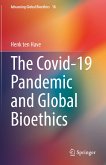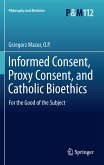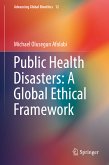This book presents and elaborates on how the teaching of global ethics in healthcare contributes to furthering ideals of cosmopolitanism: solidarity, equality, respect for differences and concern with what human beings, and specifically patients have in common, regardless of where they live and who they are. Global problems such as pandemic diseases, disasters, lack of care and medication, homelessness and displacement call for global responses. The new area of global bioethics is providing answers by arguing that ethical discourse should first of all criticize the structures of violence and injustice that underlie many threats to global health. Education of health professionals should articulate that they are 'citizens of the world', like their patients. This book first demonstrates that a moral vision of global education is necessary to gain a global dimension. It is argued that a global framework of ethical principles is available; the challenge is to elaborate and specify that framework into specific educational approaches and models. The book subsequently analyzes goals and challenges of global education in biomedicine and healthcare. It is shown how such challenges (e.g. inequities and cultural differences) can be overcome. Finally, the book presents concrete examples (cases, methods, and practices) of global education in bioethics. The unique feature of the book is that it addresses global education challenges specifically in the area of healthcare, medicine, and medical science. It combines two areas of research and experience that are usually not connected: global bioethics and global education. This book is written for all those involved in global ethics teaching in medicine, nursing, ethics, philosophy, law, and theology courses.
Dieser Download kann aus rechtlichen Gründen nur mit Rechnungsadresse in A, B, BG, CY, CZ, D, DK, EW, E, FIN, F, GR, HR, H, IRL, I, LT, L, LR, M, NL, PL, P, R, S, SLO, SK ausgeliefert werden.









